Did you know elephants communicate using low-frequency sounds that travel miles? Or that pangolin scales are so strong even lions struggle to break them? Sadly, both species are endangered, facing the threat of extinction.
But there’s hope. Understanding the challenges these species face is vital to their survival. For those passionate about protecting wild animals and spending time in nature, a career in wildlife or conservation biology may be the path to take.
The study of wildlife
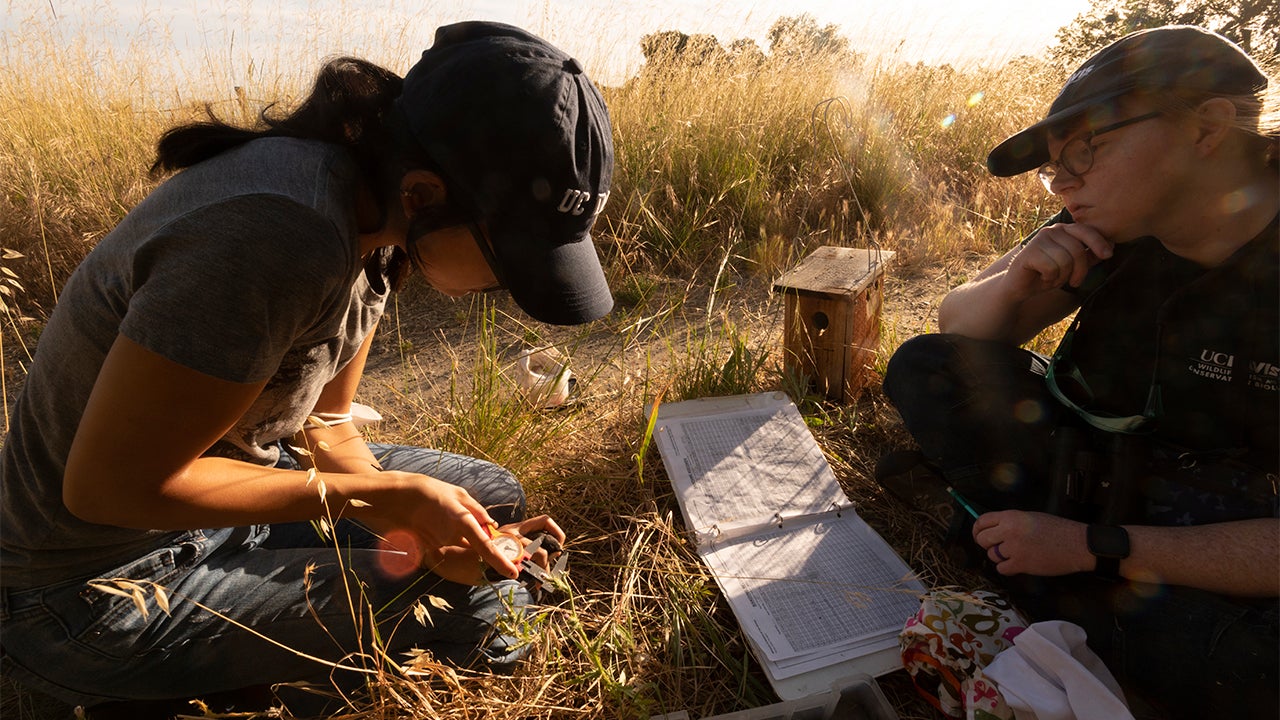
The wildlife, fish and conservation biology major at UC Davis explores the relationships between human needs and wildlife needs, focusing on habitat preservation.
“The major gives students a personalized education on wildlife while also equipping them to tackle conservation issues,” said third-year student Rachel-Ann Arias.
Through specialized coursework, students are equipped with the knowledge and skills necessary to address complex challenges in the natural world.
Definitions
- Wildlife means non-domesticated animals, including other organisms like insects and plants, that live in the wild or in captivity.
- Conservation is the protection and care of nature, ensuring wildlife and habitats survive and thrive for future generations.
- Wildlife biology is the study of wild animals — focusing on their interactions with each other, humans and their environment — and how to protect them.
Wildlife biologists are scientists who study wild animals, their behaviors and ecosystems, aiming to conserve species and maintain biodiversity, the variety of life in nature.
What is it like to be a wildlife biology major?
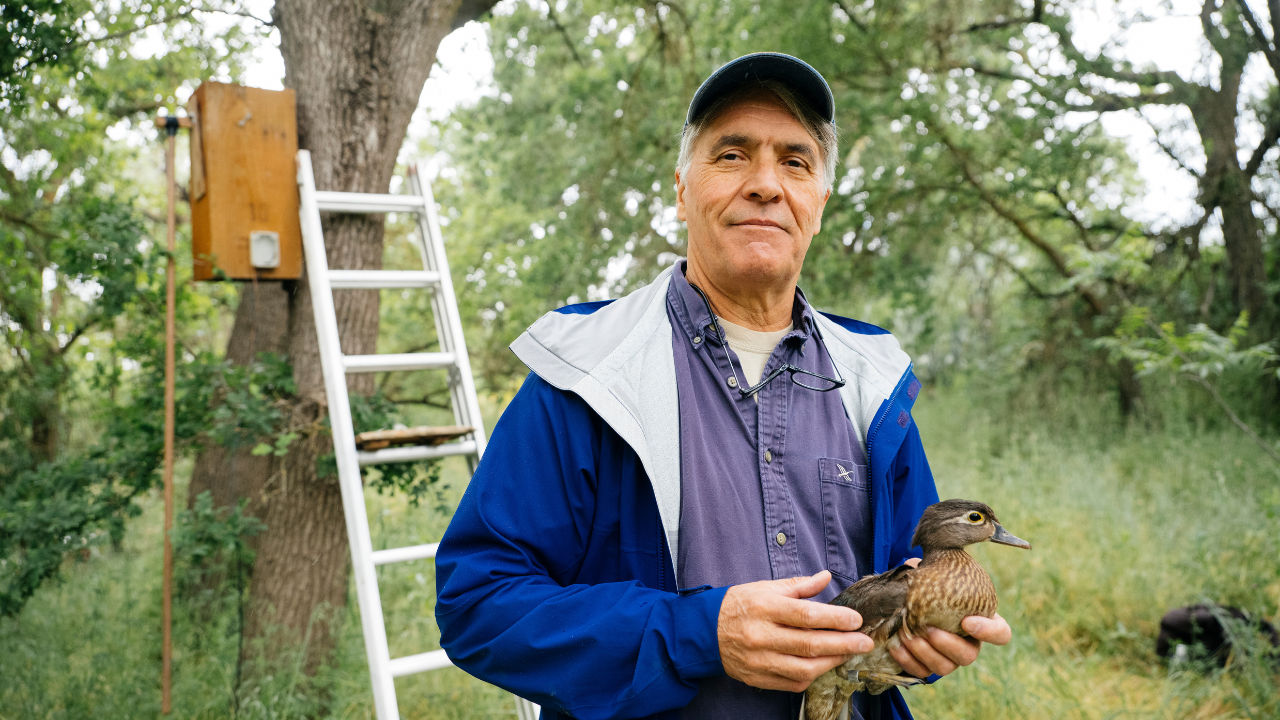
Wildlife biology students often work with and protect a variety of animals. Edilyn Lazo, a fourth-year wildlife biology major, has been passionate about conservation from a young age.
“The moment I realized a career in this field was possible, I immediately started researching how to get involved,” said Lazo, who is also majoring in cinema and digital media.
Combining her passion with creativity, she created a documentary on the Wood Duck Nest Box Program, a unique opportunity for UC Davis students to study wood ducks.
Wood ducks are one of the few waterfowl species that nest in trees. They nearly went extinct in the late 19th century due to over-hunting and habitat loss, and they still face threats from habitat loss today.
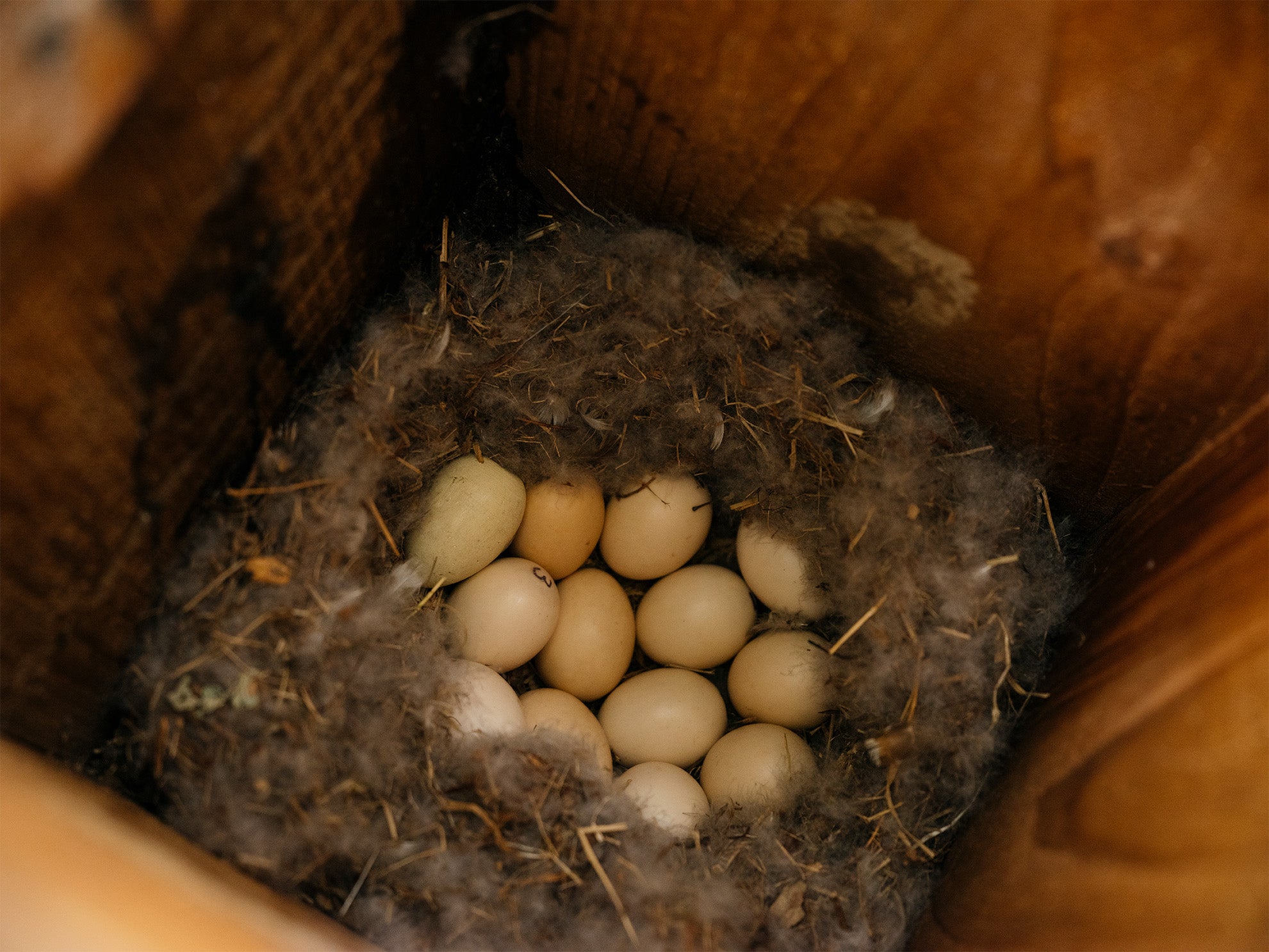
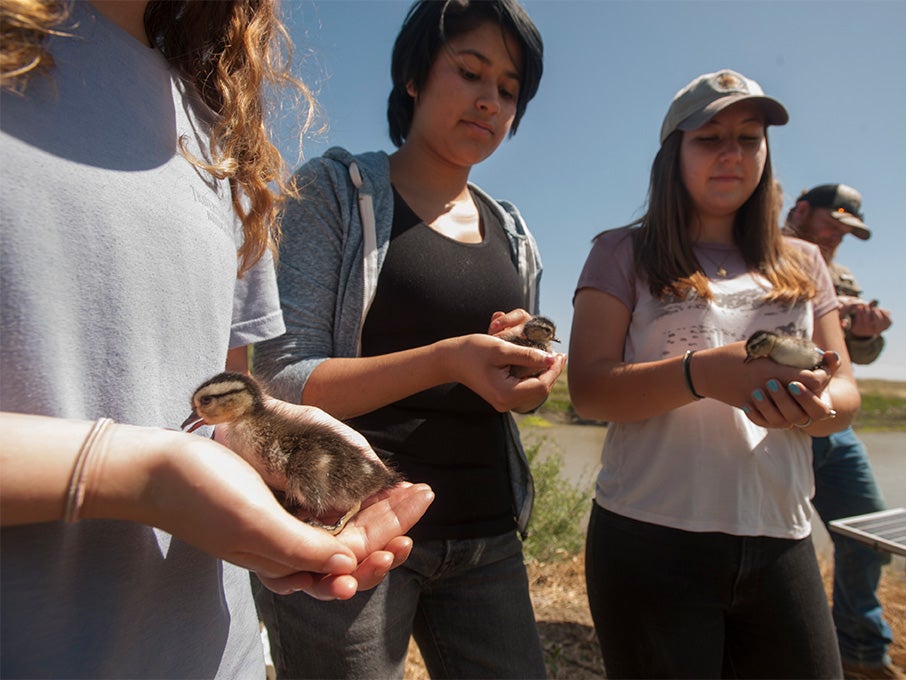
Dr. John Eadie, a UC Davis ornithology professor, has led the wood duck internship for two decades, providing hands-on conservation experience to hundreds of students. Every year, up to 90 wildlife interns gain practical skills in nest monitoring, egg measurement, bird banding and waterfowl research.
Due to a combination of wildlife protection laws, policies and programs like Dr. Eadie's, wood ducks are now an example of species restoration — when a species recovers from near-extinction to thrive once again.
Lazo documented the transformation from empty nests to nests filled with fluffy ducklings, solidifying her decision to produce more nature documentaries.
“I would love to use these studies to educate others and inspire further conservation efforts,” Lazo said.
How do you become a wildlife biologist?
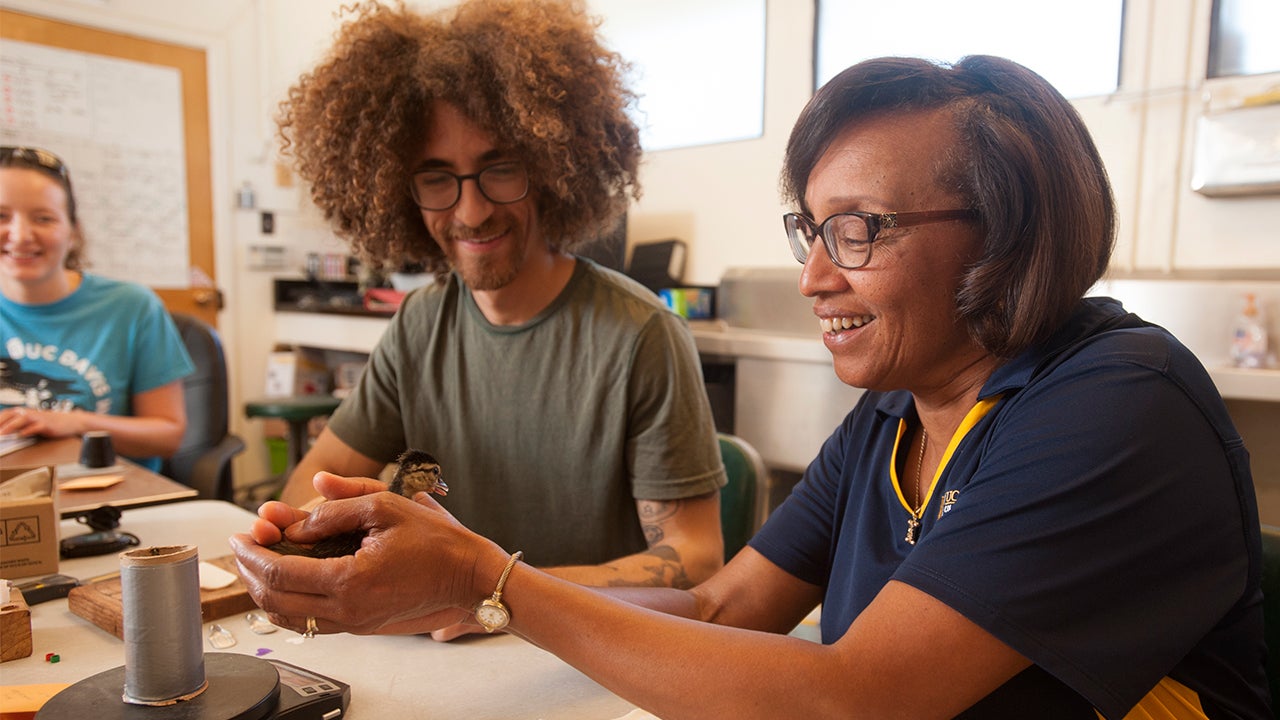
The wildlife, fish and conservation biology major is an ideal entry point for those pursuing careers as wildlife biologists, conservation biologists, zoologists and related fields.
According to the U.S. Bureau of Labor Statistics, "Zoologists and wildlife biologists typically need a bachelor's degree for entry-level positions and may need a master's degree for higher level jobs. They typically need a Ph.D. to lead research projects."
3 steps to become a wildlife biologist
Complete introductory natural science and math courses.
Choose a specialization that aligns with academic or career goals.
Fulfill all wildlife biologist educational requirements.
“Through this program, I've had countless encounters with wildlife,” Lazo said. “I’ve learned how to properly handle wild birds, take vital measurements and efficiently record field data. These skills are essential in managing and conserving wildlife populations.”
What are wildlife biology specializations?
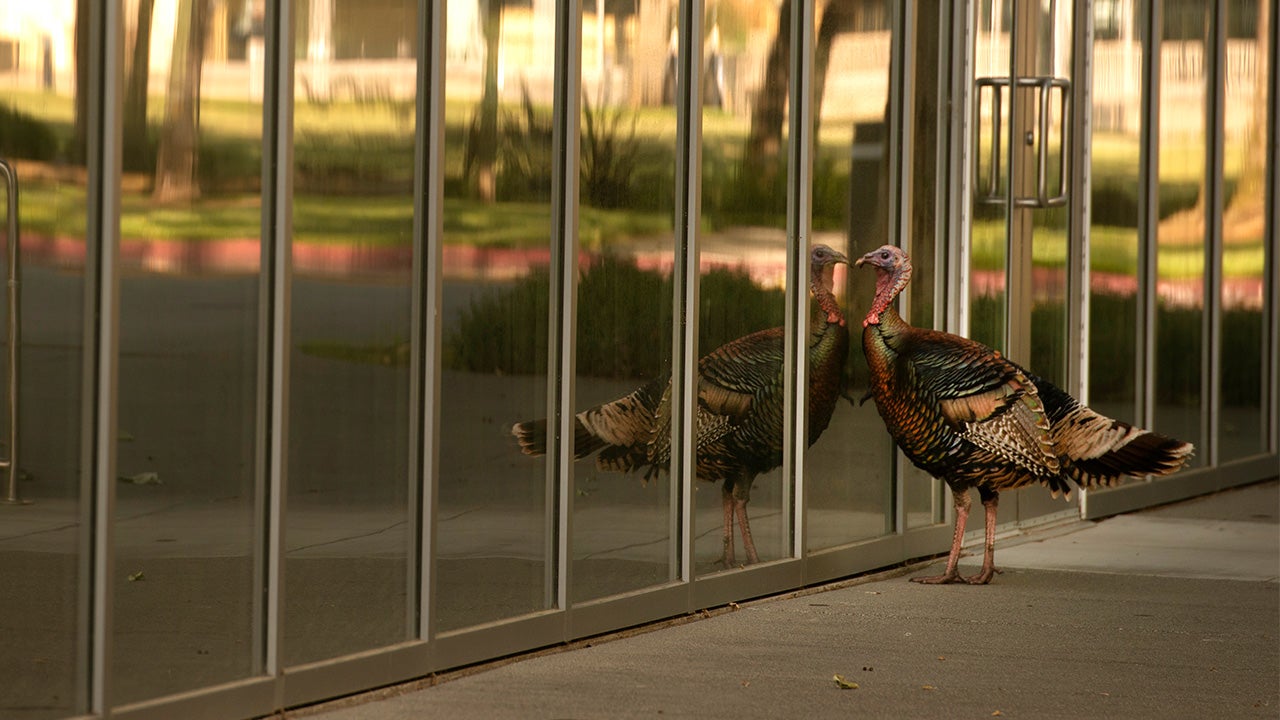
Specializations focus studies on a specific area. UC Davis offers four options within the wildlife, fish and conservation biology major:
- Wildlife and conservation biology
- Fish biology
- Wildlife health
- Individualized study
Each specialization provides a solid scientific foundation and training in the ecology and management of wildlife and fish in natural and human-altered environments. This foundation enables wildlife biology students to make a meaningful impact in the world.
“One of the most exciting and useful things I learned was different field methods for collecting animals and data,” said alum Hailey Thompson. “Overall, I’ve learned a great deal about scientific communication and how to engage the public in conservation topics.”
Do wildlife biology students conduct outdoor research?
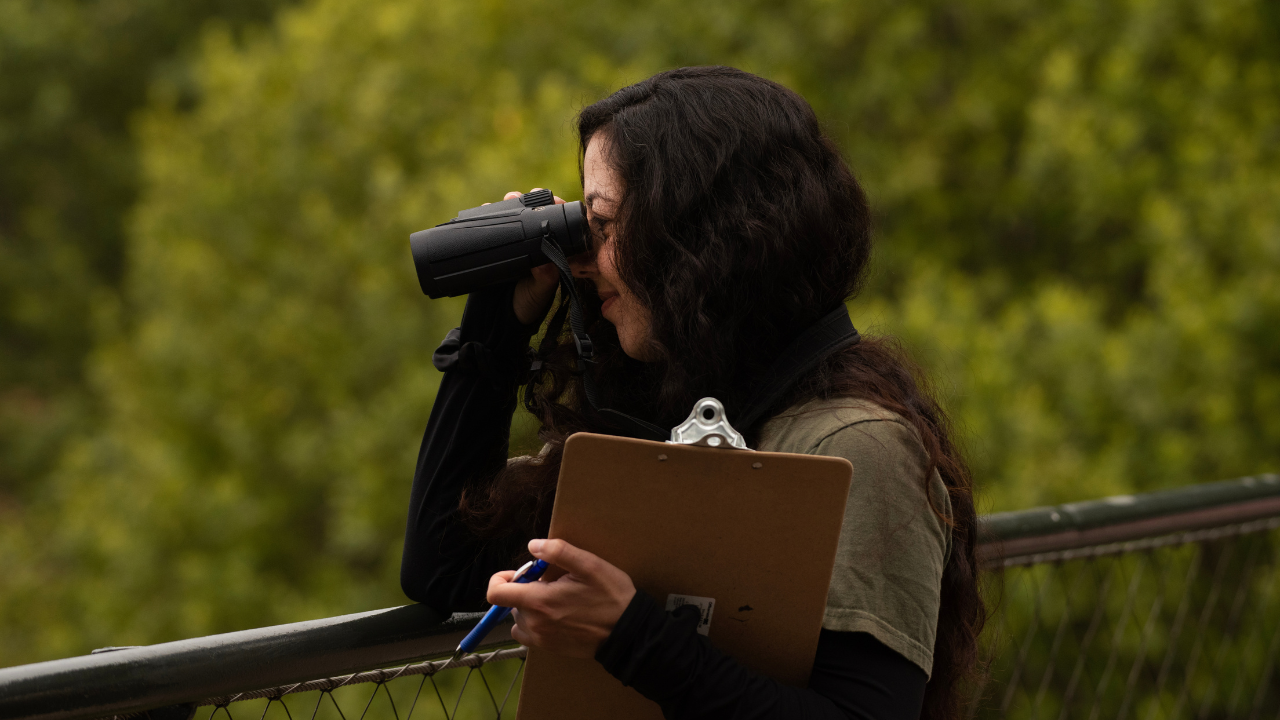
UC Davis offers a variety of wildlife research opportunities outside the classroom, including student organizations, internships and externships.
An externship is similar to an internship, but with more hands-on, off-campus research, usually shadowing a professional in the field. For instance, Dr. Eadie’s Wood Duck Nest Box Program offers hands-on experience in wildlife management.
Organizations like The Wildlife Society, American Fisheries Society and the Wildlife Photography Club provide students with opportunities to connect with the natural world.
These experiences helped Arias secure multiple positions, including at the Museum of Wildlife and Fish Biology, the Lusardi Lab and the Center for Watershed Sciences.
“I gained leadership experience serving as an officer for The Wildlife Society and became more confident in public speaking, improving my intrapersonal skills,” Arias said.
Wildlife research opportunities
Many students who utilize the following opportunities pursue fulfilling careers in wildlife biology and conservation after graduating.
- EVE Scholars Program
- Lloyd W. Swift Fund to Support Experiential Learning
- Museum of Wildlife and Fish Biology internships
- Museum of Wildlife and Fish Biology externships
- Putah Creek Nestbox Highway
More about our wildlife research opportunities
Wildlife biology and conservation jobs
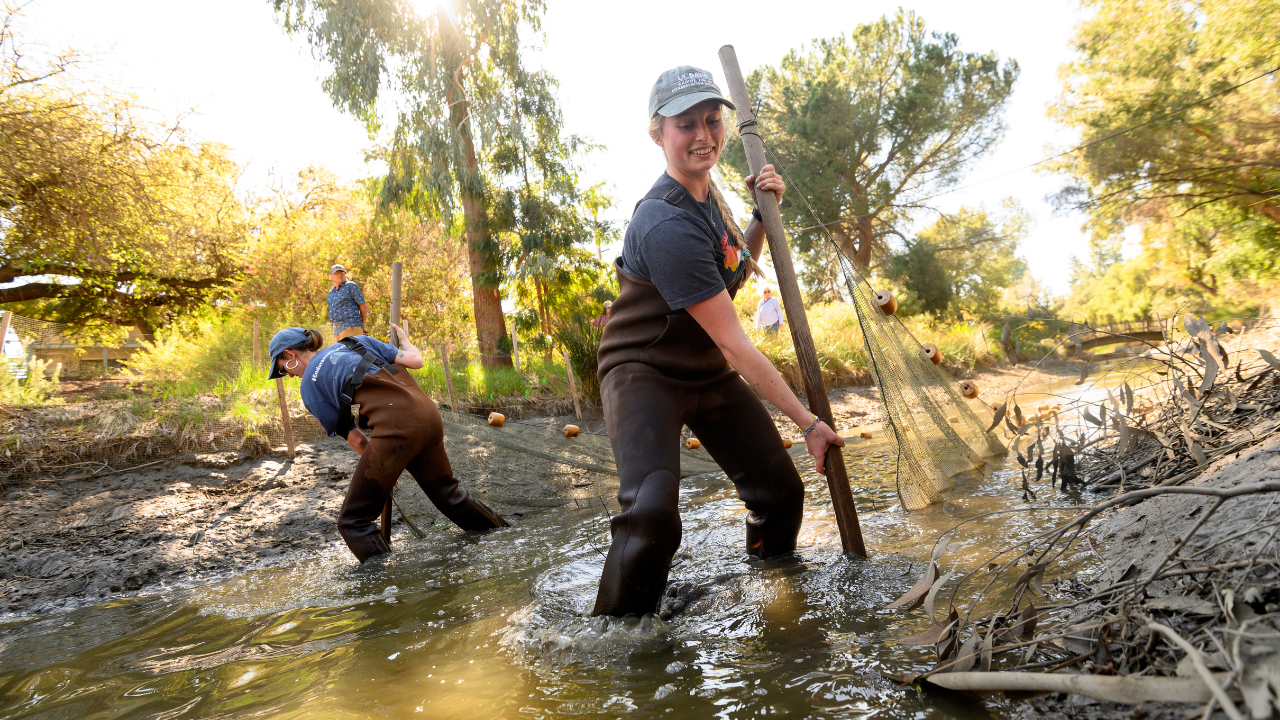
What do wildlife biology majors do once they graduate?
Graduates of the wildlife, fish and conservation biology program follow diverse career paths, using their education and experiences to make significant contributions across many sectors.
Wildlife careers
- Aquaculture specialist
- Conservation biologist
- Environmental attorney
- Environmental consultant
- Environmental journalist
- Environmental policy analyst
- Fisheries biologist
- Fisheries manager
- Forest ranger
- Marine biologist
- Restoration ecologist
- Sporting consultant
- Veterinarian
- Wildlife biologist
- Wildlife/environment educator
- Wildlife rehabilitator
Wildlife organizations
- California Department of Fish and Wildlife
- National Park Service
- Point Blue Conservation Science
- SWCA Environmental Consultants
- Trout Unlimited
- U.S. Fish and Wildlife Service
Explore this full list of top wildlife biology and conservation organizations in the U.S.
How much do wildlife biologists make?
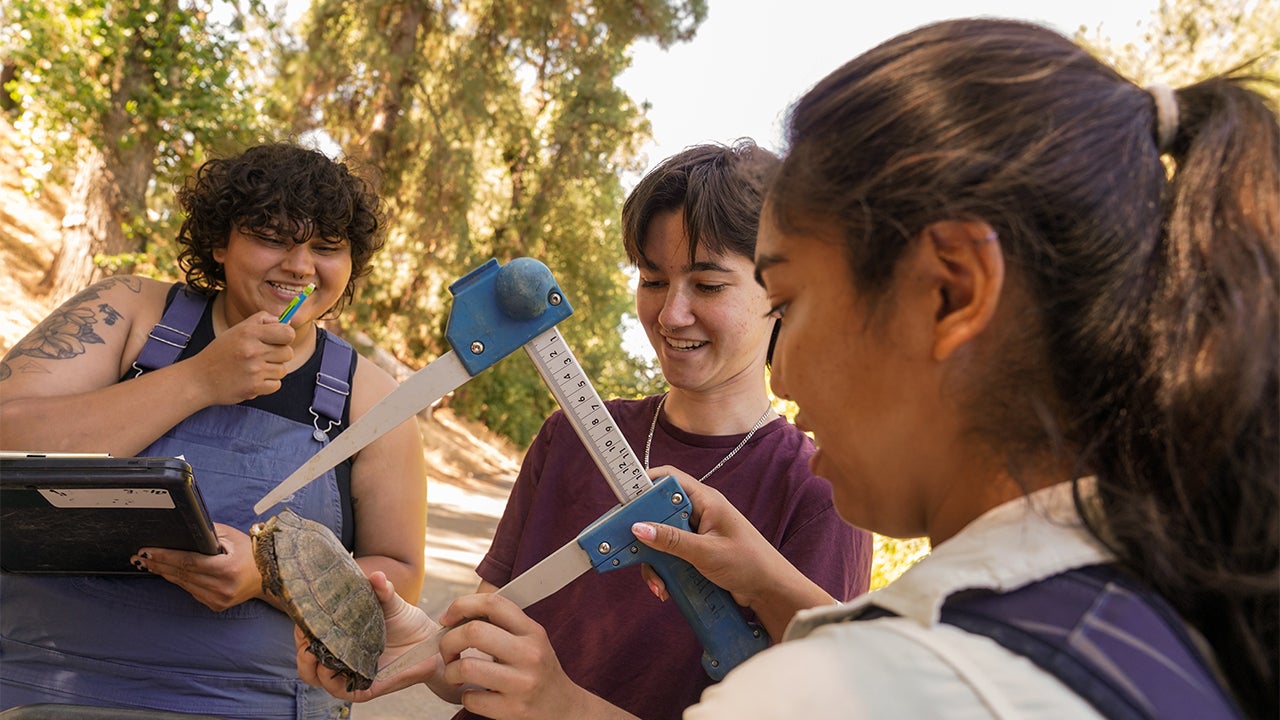
Nationally
According to the U.S. Bureau of Labor Statistics, the national median salary for zoologists and wildlife biologists is $70,600 in 2024.
Locally
The Sacramento area, where UC Davis is located, ranks among the top 10 U.S. regions for highest pay in wildlife biology, with a median salary of $91,830 in 2024.
View the BLS wage statistics page for detailed wildlife employment stats by location.
Why major in wildlife biology?
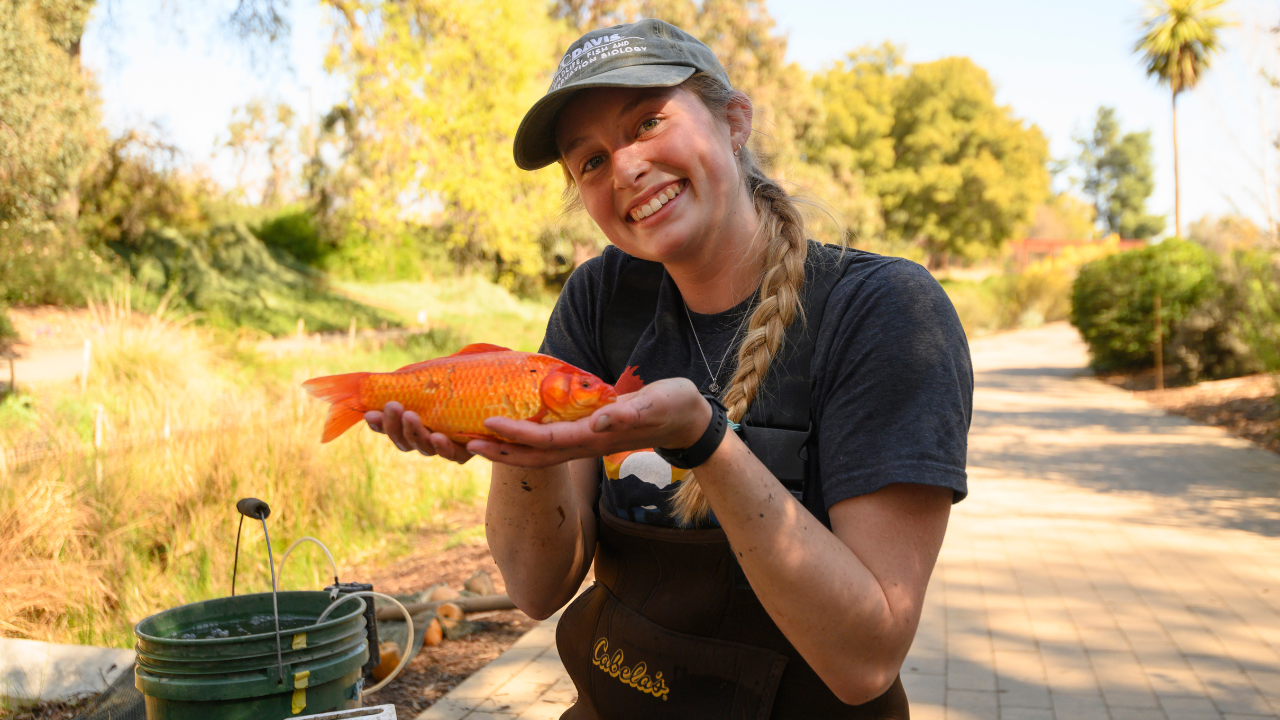
Wildlife, fish and conservation biology majors play crucial roles in shaping the future of wildlife conservation. This major not only broadens career opportunities but also offers a new perspective on the natural world.
“Learning how to identify the plants and animals around us has made day-to-day life more fulfilling and fun," Lazo said. "It's amazing how, as a wildlife biology major, you can simply step outside and identify species you've encountered in class.”
Through collaborative and innovative research, students in this major continue to drive forward initiatives that safeguard our planet’s wildlife and habitats, ensuring a vibrant and sustainable future for generations to come.
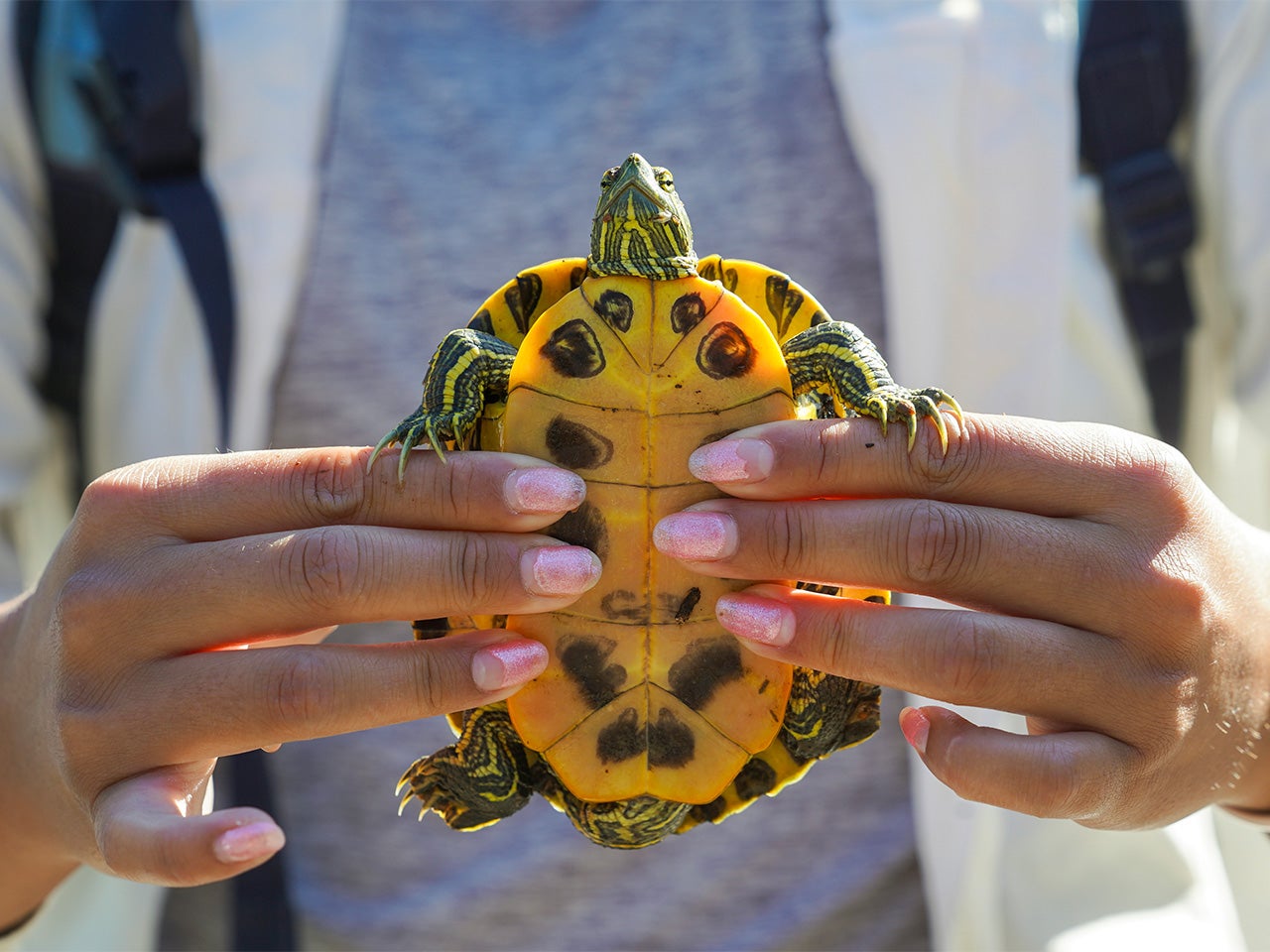
Wildlife, fish and conservation biology major
Passionate about wildlife? From tracking fluffy ducklings to protecting endangered species, UC Davis offers a hands-on conservation education like no other.
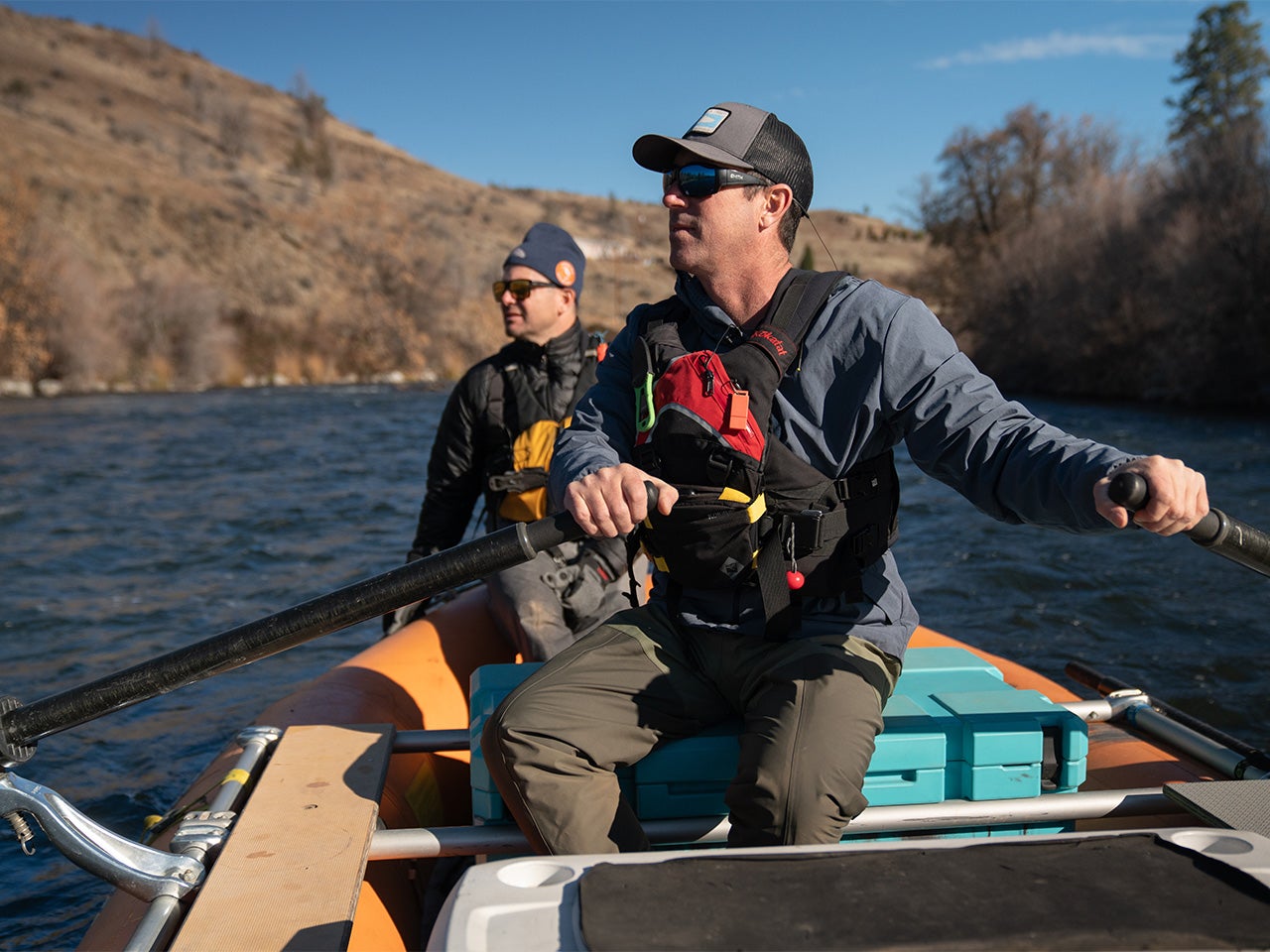
Studying salmon before and after dam removal
What is the impact of Klamath dam removal on salmon? Learn how our scientists are studying the restoration of salmon’s access to 400 miles of spawning habitat.

Jaylynn Velhagen-Dizon (she/her) graduated from UC Davis in 2024 with Bachelor of Arts degrees in English (creative writing emphasis) and cinema and digital media. Originally from Southern California, she is a Majors Blog intern for UC Davis' Office of Strategic Communications, where she writes, edits and manages online content. Her work has been featured on Her Campus and in Open Ceilings literary magazine. Jaylynn's favorite part of campus is the Arboretum and Public Garden, where she enjoys bird watching and admiring the poppies every spring.
